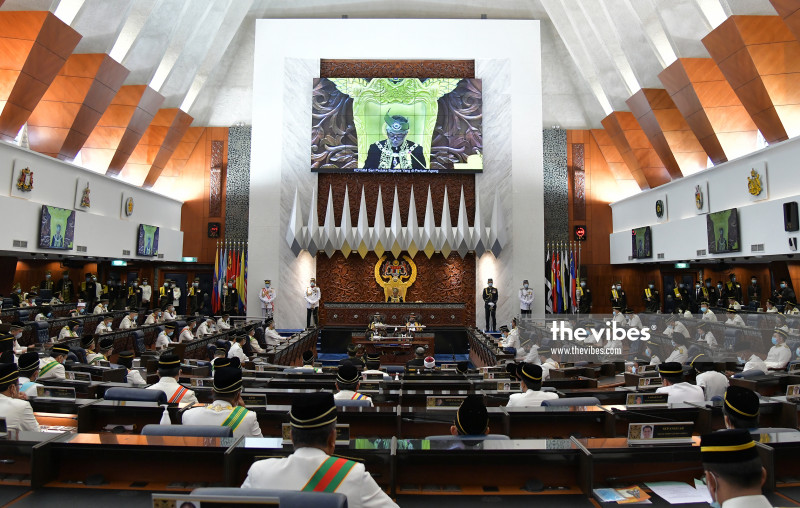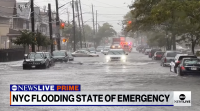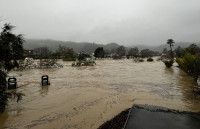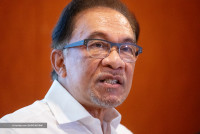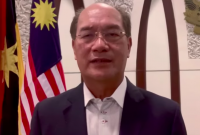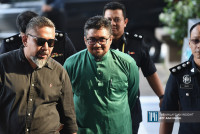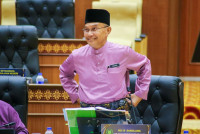THE prime minister and members of the cabinet apparently met the Yang di-Pertuan Agong recently.
The country is facing a sharp increase in the number of Covid-19 cases.
The supply bill to authorise and fund the government for next year (which we call Budget 2021) has yet to be passed. The current administration apparently does not think it has the votes to pass the Budget.
So, the cabinet has purportedly given “various options” to our constitutional monarch, including recommending a proclamation of emergency.
Article 150 of the federal constitution does not allow an emergency to be declared over public health concerns.
Article 150 allows a proclamation of emergency over the whole or parts of the Federation to be made by the Agong when he is “satisfied” that a “grave emergency exists, whereby the security, or the economic life, or public order” in the whole or parts of Malaysia is “threatened” or “imminent”.
Where the constitution permits interference with fundamental liberties because of public health concerns, it expressly says so. Thus, Article 9 (that guarantees the right to free movement) can be restricted on public health grounds, which is why the movement restrictions we have faced, made under the Prevention and Control of Infectious Diseases Act 1988, are probably constitutional. Similarly, Article 11, which guarantees freedom of religion, is subject to any general law protecting, among other things, “public health”.
So, the pandemic is not valid grounds, according to the constitution, for a declaration of emergency, where legislative and executive action can be taken to curtail almost all our fundamental liberties.
The inability to pass the Budget does not threaten the economic life of the country.
If the current administration says it cannot pass the Budget, this does not mean that there is a threat to the country’s economic life. Indeed, news reports say the administration expressly wants economic activities to continue under the emergency. The cabinet just wishes to stop “political activities”. There is clearly an improper motive behind the suggestion for a state of emergency.
There are many mechanisms and methods available to pass the Budget. For now, it is purely speculation that it would be impossible for parliamentarians to agree on the Budget. They have not even been given a chance to try and reach an agreement.
We should recall that these same MPs, despite there being no coalition commanding a two-thirds majority in Parliament, were able to agree to amend the constitution to lower the voting age from 21 to 18. We should let these MPs try to come to an agreement again.
Agong not bound to proclaim an emergency
With some notable exceptions dealt with below, Article 40(1) of the constitution states that every action taken by the Agong as a constitutional monarch is done on the advice of the cabinet. Thus, though Article 150 talks about the satisfaction of the Agong, the decision to issue a proclamation of emergency is, arguably, really that of the cabinet.
Amendments to the constitution were made in the late 1970s and early 1980s to state that the Agong’s satisfaction when proclaiming an emergency could not be challenged in court. Shukri Shahizam persuasively argues that despite this, a court could (and I would say, should) overturn such a proclamation made in these circumstances.
However, here, we should note that the cabinet has apparently not yet advised the Agong to make that dire proclamation. “Options” have instead been given. Tuanku, therefore, presumably has room to consider the following points.
Admission of loss of confidence
The cabinet’s decision is essentially an admission to the Agong that the current administration has lost the confidence of a majority of Dewan Rakyat members.
Article 43(4) is clear that the prime minister must resign unless he “requests” the Agong to dissolve Parliament, and the Agong agrees to this.
You will recall that I earlier said the Agong must act on the advice of the prime minister in all his actions. There are some exceptions to this.
The Agong can act in his personal discretion (subject to constitutional conventions) in three matters: the appointment of the prime minister, deciding whether to dissolve Parliament, and issues affecting Malay customs or His Majesty’s royal privileges.
Given that the cabinet has conceded that it cannot pass the Budget, its members must resign. It is the only constitutional option now.
Appoint new PM, pass Budget even if it’s a minority govt
If the prime minister has requested that the Agong dissolve Parliament, the Agong is not bound to follow such a request. Dissolving Parliament means a general election. There are valid public health concerns against doing this now.
The Agong has another choice: he can invite another person to form a government.
Our constitution caters to the likelihood of a minority government. A prime minister does not have to command confidence; instead, the Agong appoints the person he considers most “likely” to command such confidence.
Parliament must be summoned urgently to start work again. Additional restrictions can be imposed on parliamentarians, pursuant to the laws in place to control infectious diseases.
A meme is already circulating, suggesting that the only lockdown ought to be one that involves MPs. I see no reason why MPs should not be quarantined, and only be allowed to attend their ministerial offices (if any) and Parliament while it is in session.
MPs should amend the Standing Orders to permit themselves to convene by video. I do not think the constitution requires a fixed physical place to be constituted as Parliament. MPs can, in my view, meet anywhere.
From a practical standpoint, youth from across Malaysia recently showed that there is nothing stopping a purely “Digital Parliament” from being a meaningful place to debate matters of policy.
Senator Liew Chin Tong has written about some mechanisms available for a Budget to be approved. Political parties can enter “confidence and supply agreements” that ensure support for Budgets and confidence votes. Other matters are voted on, on a case-by-case basis. Bipartisan committees of the Dewan Rakyat can be formed to debate and negotiate the Budget prior to its announcement on the floor of the House.
Indeed, such negotiations are a regular feature of US public life, and the US remains one of the strongest economies in the world.
Conclusion
An emergency cannot be declared for public health reasons. But luckily, there are many other options available to the country other than the extremes of emergency rule or a general election.
We must cope with the pandemic using the tools available to us, made so much easier with the advances in modern technology.
Expediency is no excuse for an emergency. – The Vibes, October 25, 2020
K. Shanmuga is a lawyer interested in the workings of the constitution



